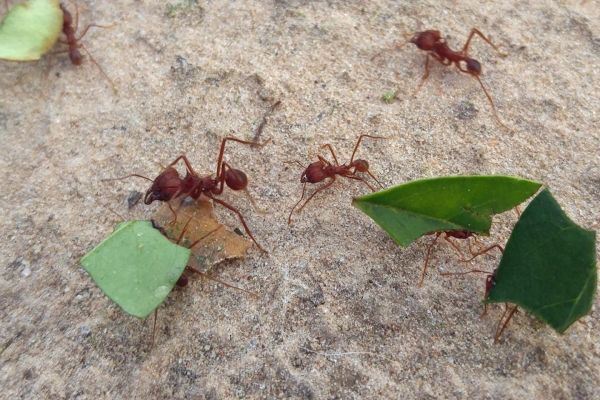A complex genetic analysis has biologists re-evaluating some long-held beliefs about the way societies evolved following the invention of agriculture — by six-legged farmers.
Like humans, leafcutter ants grow crops, and like humans, farming allows the ants to produce enough food to support millions of individuals who work at specialized jobs. But while people invented agriculture at the dawn of civilization about 10,000 years ago, leafcutters began cultivating massive subterranean fungus gardens more than 10 million years ago.
In a study published this week in Molecular Ecology, biologists from Rice University, the University of Texas at Austin (UT Austin) and Brazil’s São Paulo State University analyzed genetic data from samples collected at leafcutter nests throughout South, Central and North America and concluded that the ants originated in South America and owe their success to something more than their choice of crops.
“The ability to grow domesticated crops was a major turning point in human history and evolution, and we thought, until recently, that a similar thing was true for leafcutters,” said study co-author Scott Solomon, an evolutionary biologist at Rice who collected many of the study’s samples as a graduate student and postdoctoral researcher at UT Austin and the Smithsonian Institution in Washington, D.C. “Our findings suggest that several of the things we thought we ‘knew’ about leafcutters are not true.”
Read more at Rice University
Image: Leafcutter ants. (Credit: Brandon Martin/Rice University)


